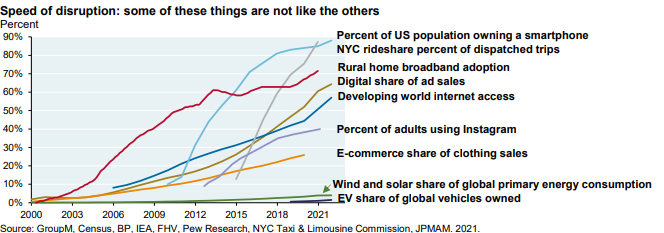As I read about Harvard students demonstrating in favor of Hamas and educated people proclaiming that “decolonization” should be pursued “by any means necessary,” I thought of Dostoevsky’s reaction, a century and a half ago, to atrocities committed by the Ottomans as they suppressed uprisings among their Slavic subjects. This was a case, apparently unknown to today’s “decolonizers,” in which a Muslim empire persecuted colonized Christians.
The European press was then filled with reports that now seem familiar. Whole families were wiped out; women raped and tortured; living people humiliated and corpses abused; children slowly murdered before their parents’ eyes; and, in one case that particularly shocked Dostoevsky, a young child forced to watch her father being flayed alive “completely.” The child, Dostoevsky reported, was being cared for in Russia, where she repeatedly fainted as she recalled what she witnessed.
If it seems that only uncivilized people could be such sadists, Dostoevsky cautions, know that the same thing could happen among civilized Europeans as well. “For the moment it is still against the law,” he writes, “but were it to depend on us, perhaps, nothing would stop us despite all our civilization.”
For the time being, “people are simply intimidated by some sort of habit,” Dostoevsky continues, but if some progressive expert were to come up with a theory showing that sometimes flaying skins can benefit the right cause because “the end justifies any means,” and if that expert were to express his view “using the appropriate style,” then, “believe me,” there would be respectable people among us “willing to carry out the idea.” Despite our sophistication and professions of compassion, “all that’s needed is for some new fad to appear and people would be instantly transformed.” Not everyone, of course, but the number of adherents of the new fad would grow while others would be afraid, or embarrassed, to cling to old ideas. And then, “where would we find ourselves: among the flayed or among the flayers?”
After 9/11, it turned out that terrorists were often well-off and well-educated. Cruelty often thrives among the sophisticated. Dostoevsky recalls the French terror, when people were humiliated and murdered in the name of the highest principles—“and this after Rousseau and Voltaire!” We know, as Dostoevsky could only suppose, that during the Stalinist terrors millions were routinely tortured in the most degrading way possible; and that during the collectivization of agriculture, millions more were deliberately starved to death, with young Bolshevik idealists brought in to enforce the famine and take bits of food away from bloated children. In the West, intellectuals justified such behavior because it was done in the name of socialism and anti-imperialism.
Dostoevsky adds that there is no need to resort to examples from the past because the same dynamic can occur in any place at any time that allows the dark side of human nature to show itself, clad in the language of whatever passes for progressive and enlightened. “Believe me,” Dostoevsky addresses his readers, “the most complete aberration of human hearts and minds is always possible.”
It is a terrible mistake to imagine that thuggish deeds are performed only by thugs. Recalling his own early career as a revolutionist, Dostoevsky maintains that his group, which could readily have performed the most terrible acts, was composed of sophisticated people with the Russian equivalent of Ivy League educations. But despite regarding themselves as a cultured elite—or perhaps because they did—few “of us . . . could resist that well-known cycle of ideas and concepts that had taken such a firm hold on young society.” Then it was “theoretical socialism,” but it could have been anything, and there is no good reason to “think that even murder . . . would have stopped us—not all of us, of course, but at least some of us . . . surrounded by doctrines that had captured our souls.”
Dostoevsky recalls that in his novel “The Possessed,” he showed how even the most innocent hearts can be drawn into committing monstrous deeds and feeling proud to have committed them. “And therein lies the real horror: that . . . one can commit the foulest and most villainous act without in the least being a villain! And this happens . . . all over the world, since time began.” “The possibility of considering oneself—and sometimes even being, in fact—an honorable person while committing obvious and undeniable villainy,” he adds, is a possibility we overlook at our own peril.
A century later, Alexander Solzhenitsyn, contemplating the idealist Russians who joined in torture and the enlightened Western intellectuals who whitewashed it, asked why Shakespeare’s villains murdered only a few people while the Bolsheviks killed millions. To answer this question, he reflects, one must grasp that no one thinks of himself as evil. To perform evil deeds a person must discover “a justification for his actions,” so that he can regard stealing, humiliating and killing as good. “Macbeth’s self-justifications were feeble,” and so conscience restrained him. He had no ideology, Solzhenitsyn observes, nothing like “anti-imperialism” or “decolonization” to allay pangs of guilt. Solzhenitsyn concludes: “Ideology—that is what gives evil-doing its long-sought justification and gives the evil-doer the necessary steadfastness and determination . . . so that he won’t hear reproaches and curses but receive praise and honors.”
I have heard commentators worried that cancel culture and suppression of diverse opinions might lead to a “soft totalitarianism.” If only. We need to recognize that some of those who justify Hamas’s atrocities would be ready to perform them against their designated enemies. And unlike Dostoevsky’s Turks or today’s Hamas, they would have high-tech means at their disposal to extend their reach. I fear that the horrors of the 20th century may prove only a foretaste of much worse in the near future.
Mr. Morson is a professor of Slavic languages and literatures at Northwestern University.




